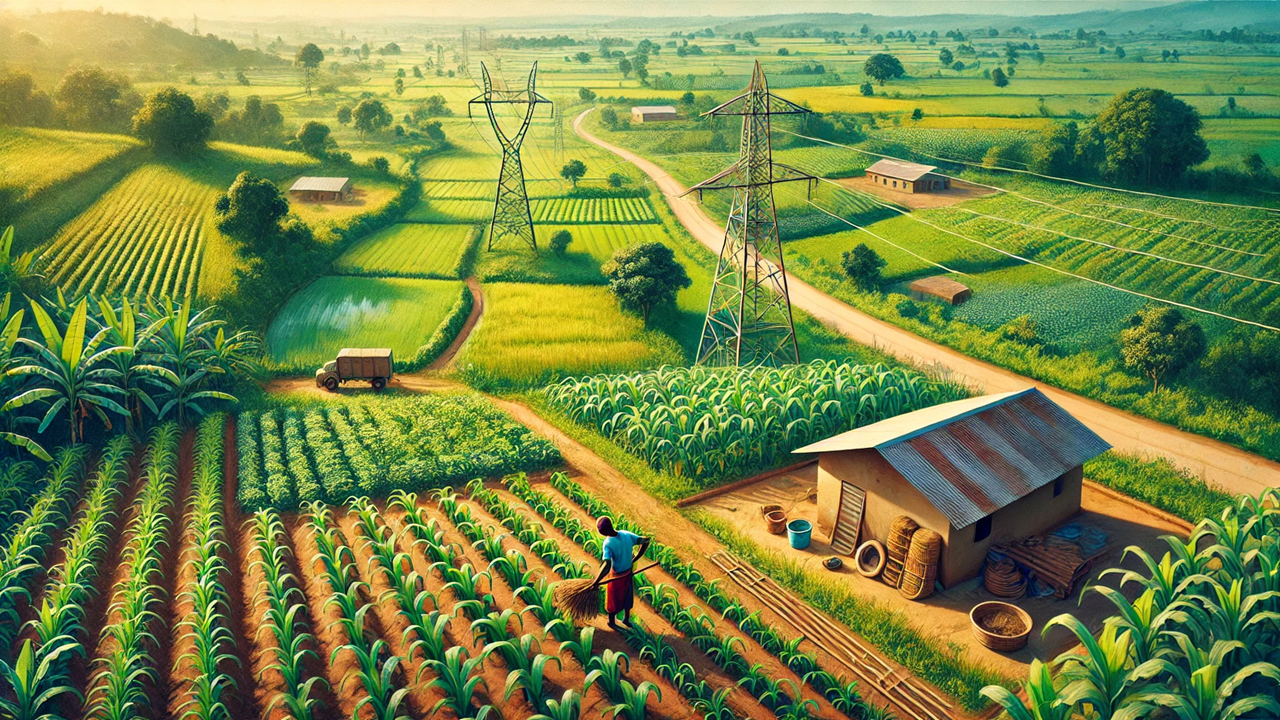IFAD Advocates for Greater Investment in Small-Scale Farmers at 17th GFFA
Highlighting the Critical Role of Small-Scale Farmers in Achieving Global Food Security and Climate Solutions.

At the 17th Global Forum for Food and Agriculture (GFFA), the International Fund for Agricultural Development (IFAD) is making a strong case for increased global support and investment in small-scale farmers. This year’s forum, held in Berlin from 15 to 18 January 2025 as part of the Berlin International Green Week, focuses on building a sustainable bioeconomy.
“Small-scale farmers are the backbone of our global food systems, producing one-third of the world’s food while enduring disproportionate impacts from climate change and economic instability,” stated Gérardine Mukeshimana, IFAD Vice President. “Investing in their resilience and livelihoods is not only a moral imperative—it is a strategic solution to some of the world's most pressing challenges.”
Empowering Small-Scale Farmers for Sustainable Growth
Small-scale farmers, who represent the majority of agricultural producers worldwide, are vital to food security and climate resilience. IFAD’s efforts aim to empower these farmers by promoting sustainable practices, circular economy models, and inclusive governance of natural resources.
“Supporting these farmers strengthens local economies, enhances global food security, stabilizes international markets, and contributes to sustainable development,” Mukeshimana explained. “This approach is ethically right and an economic necessity that benefits communities and nations worldwide.”
IFAD emphasizes the importance of agroecological practices, which reduce greenhouse gas emissions and preserve biodiversity. “By empowering small-scale farmers, we can promote sustainable farming methods, build resilience to climate change, and ensure long-term global food security,” added Rikke Grand Olivera, IFAD’s Lead Global Technical Specialist for Land Tenure and Natural Resources Management.
Food Systems at a Tipping Point
The world’s food systems are at a critical juncture, with 735 million people suffering from hunger and 3 billion unable to afford a healthy diet. Investing in small-scale farmers has the potential to significantly boost agricultural productivity and improve access to diverse, nutritious food.
Small-scale farmers also play a pivotal role in addressing climate change. With food systems contributing roughly one-third of global greenhouse gas emissions, empowering these farmers to adopt climate-smart practices can mitigate environmental impacts while enhancing resilience.
Germany’s Leadership in Sustainable Development
Germany’s commitment to sustainable development makes it a key partner for IFAD in advancing these goals. Initiatives like the Energiewende—a policy focused on transitioning to renewable energy—and the Climate Action Programme 2030, which implements carbon pricing and promotes green innovation, showcase how economic growth and environmental sustainability can go hand in hand.
“Germany is a global leader in sustainable development,” Mukeshimana noted. Its innovative policies, such as the Supply Chain Due Diligence Act (LkSG), align closely with IFAD’s mission of creating equitable and inclusive food systems.
Germany has also demonstrated its commitment through its support of international programs, such as providing financing for climate-resilient agriculture and fostering global partnerships for innovation.
Strengthening the Global Commitment
The GFFA brings together policymakers, scientists, and industry leaders to discuss transformative approaches for agriculture and food systems. IFAD is calling for:
- Increased Funding: A significant scale-up in financial resources to support small-scale farmers in adopting sustainable practices and improving productivity.
- Global Partnerships: Strengthened collaborations between governments, the private sector, and international organizations to ensure inclusive and innovative solutions.
- Policy Alignment: Integrating sustainable and equitable food system practices into national and international policy frameworks.
A Vision for the Future
IFAD’s decades of experience highlight the transformative potential of investing in rural communities. Between 2019 and 2021, its initiatives improved the incomes of 77 million people and enhanced food security for 57 million individuals.
As global leaders convene at the GFFA, IFAD’s message is clear: prioritizing small-scale farmers is essential for building resilient food systems, combating hunger, and addressing climate change. Investments in these farmers represent not only an ethical obligation but also a critical step toward achieving a sustainable and equitable future for all.










